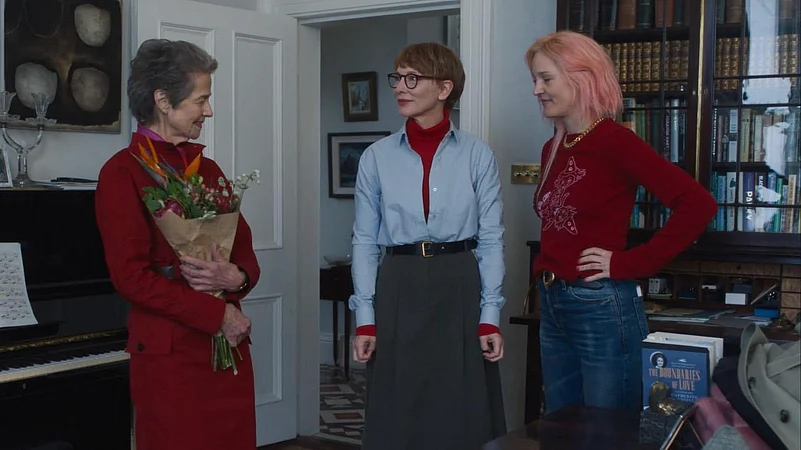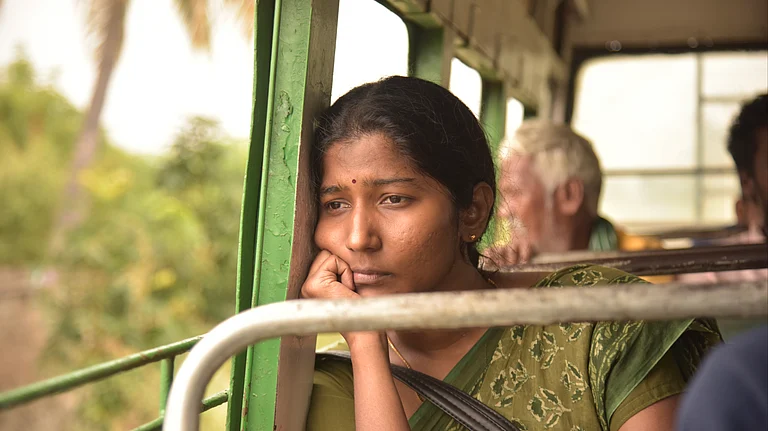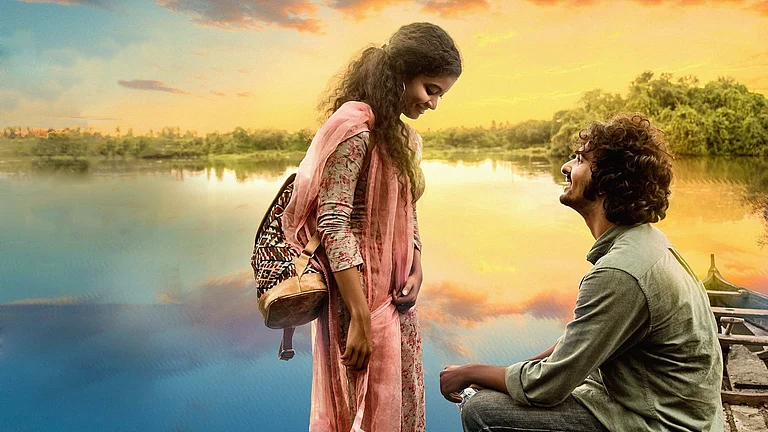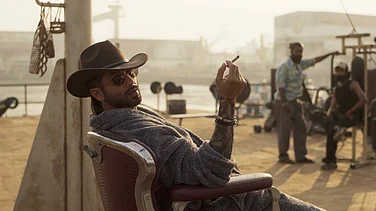
Directed by Jim Jarmusch, Father Mother Sister Brother (2025) premiered at the 82nd Venice International Film Festival and won the Golden Lion
The film stars Cate Blanchett, Vicky Krieps and Charlotte Rampling; Tom Waits, Adam Driver and Mayim Bialik; and Indya Moore and Luka Sabbat in three different chapters of the anthology
Divided into three chapters or episodes, the film journeys through people and across cities, giving us glimpses of their lives while also keeping the audience at bay
Jim Jarmusch, famous stalwart of American independent cinema, has always been interested in the fringe - ideas, people, society. In his latest film, Father Mother Sister Brother, he builds an anthology centered on, as the title suggests, familial relationships that exist on the fringe. The film premiered at the 82nd Venice International Film Festival and won the Golden Lion. Divided into three chapters or episodes, the film journeys through people and across cities, giving us glimpses of their lives while also keeping the audience at bay. This works in its favour as two of the three episodes are about distant relationships between parents and their children.
The first episode stars Tom Waits as Father with Adam Driver and Mayim Bialik as his children Jeff and Emily visiting him in New Jersey. Charlotte Rampling plays Mother, also a prolific author, waiting for her daughters Timothea (Cate Blanchett) and Lilith (Vicky Krieps) to show up for their annual tea party. Indya Moore and Luka Sabbat are twin siblings Skye and Billy, rendezvousing around Paris after their parents’ passing.
Despite being unrelated, all stories share common threads and themes. Distanced from their parents, children here have no real knowledge of their lives. Emily hasn’t seen her father in years, Jeff sends him money but has no idea why. Timothea and Lilith, who moved to Dublin to stay closer to their mother, only see her once a year. There’s an air of discomfort and strangeness between them. Restraint guides their interactions rather than familiarity and openness. The two episodes fit like double bills.

Jeff, self-proclaimed family anarchist, actively cares for his father in whatever capacity he can but Emily has kept away. We wonder if the father lies to his children about his life and it’s hinted that he probably does. In Mother, Timothea desires her mother’s appreciation, lives a ‘proper’ life and wishes to make her proud. Lilith on the other hand cannot be truthful - about her sexuality or her living situation.
Tea ties them but in a threatening way. Guarded care from the mother presents itself, but Lilith cannot be honest with her. Mother cannot be either. The daughters haven’t read their mother's books because shedoesn’t wish them to, shielding her work and her internal world from being known. In both stories, the bond is painted in mild to serious deception. In both stories, we wonder what could’ve surpassed to bring this about but we never get the answers. This is both good and bad.

With identical colours, recurring jokes and repeating motifs, Jarmusch paints a picture of oneness, but instead of growing on you, they evoke restlessness as if he’s trying too hard. This hasn’t been the case for his other anthologies like Coffee and Cigarettes, Night on Earth, etc., which successfully create harmony amongst diverse stories.
Jarmusch’s fascination with various cities should allow for their respective cultures to speak, but they sort of all blend into each other. The characters in the two episodes could be swapped and it wouldn’t make much of a difference. Perhaps the film aims to be such, but personally, this felt bland to me.
However, the film also has grounding moments. All episodes open with people inside a car, reminding us of the filmmaker’s affinity to them and successfully speaking for the metaphorical and actual journeys to be made. Some magical moments present themselves in small, seemingly insignificant ways - Emily can look out the window and glimpse into her father’s life, Timothea can fix her car and find her way home, random shots of skaters feel like moments of liberation from discomfort.
With Sister Brother, Jarmusch presents a sort of anti-thesis to what we’ve seen before. Unlike the previous stories, there is home and companionship here. The siblings know about each other's lives and do not lie to each other. They share a “twin connection.” As opposed to the sibling distance and envy witnessed before, they seem deeply connected to each other. Almost too deeply. They constantly proclaim love and gratitude for the other’s existence. This feels like a farce. Sibling law doesn’t allow for constant declarations of love, even if you may go to war for them. Hence, even with lack of conflict and overbrimming positivity, there lacks any “realness” in the bond. As a sibling, I personally couldn’t bring myself to believe in their affection.

The knowledge problem persists; Skye and Billy’s unawareness of their parents’ lives is dispelled only after they are gone. They learn from memorabilia, from whatever’s left of them and I wonder if the last episode served as a prophecy of how children would discover their parents after they’re gone. Perhaps Jeff-Emily and Timothea-Lilith also would, although this could be reaching too far. Regardless, this adds to Sister Brother being different - there’s no hesitance and blockade, despite not knowing their parentage “why they were doing anything, anywhere?”
With odes to tea and coffee, Jarmusch tries to dedicate space to these stories but they’re not as effective as we hope, given the stellar cast in the film and especially in comparison to his previous anthologies which have managed to say so much in so little. Almost as if this movie was made earlier, as an amateur experiement to perfect the craft in service of making his other films that came before this. Attempting to weave through immediate relationships, it doesn’t understand them, merely displays them. It leaves one feeling discomforted and lonely, but fails to hit home. Becoming the sort of loneliness that doesn’t journey outside the cinema with you - existing on the fringe, easily shaken off and quickly forgotten.



























